Breastfeeding is no doubt a beautiful way to feed your baby, but don't be fooled: It's also FULL of surprises. And unless you know what to expect and when, nursing can be full of frustration, too.
For instance: Many moms freak if their milk isn't flowing on day one. Well, guess what? That's not what your body is designed to deliver, or what your baby needs. To help prep you for the first year of breastfeeding, here are some breastfeeding milestones to commit to your memory.
Aren't month 3–6 a nice bonus for losing that baby weight?
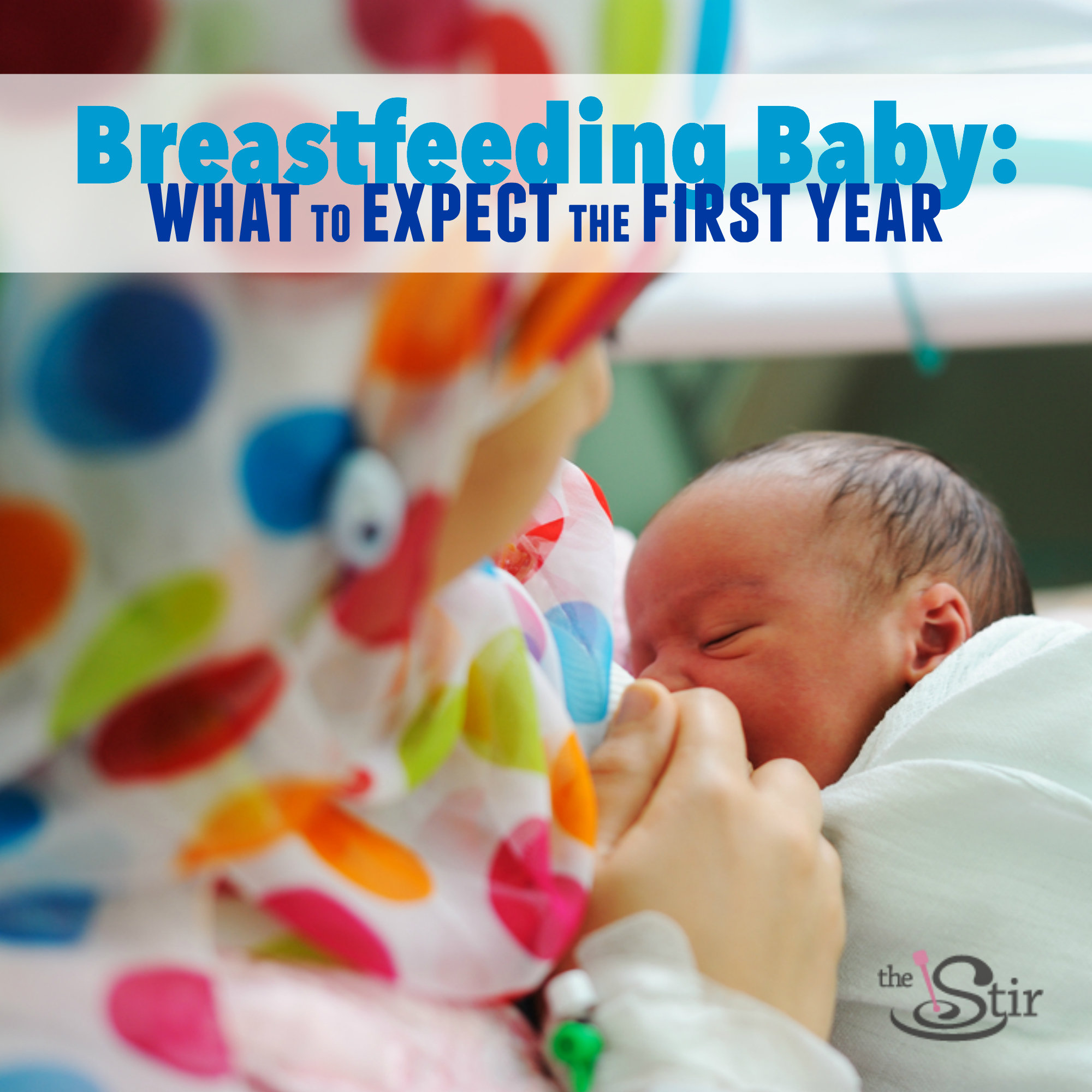
Image via SvetlanaFedoseyeva/shutterstock and © ZouZou/Shutterstock
Day 1

At this early stage, the milk may not be flowing, but rest assured breastfeeding is still very worth your while. The reason: Your breasts are filled with a clear type of milk called colostrum. "Colostrum is the first milk produced and is present within the breast during the last part of pregnancy," says Irene Zoppi, a registered nurse and lactatation consultant. And even if it's just a few drops, it's highly nutritious and plenty for your newborn.
Day 2-5

Anywhere from two to five days after birth, your milk with "come in" — meaning your boobs will become so engorged with milk they may feel as hard and heavy as bowling balls! (Thankfully this will even out later.) That said, "much depends on the birth," says lactation consultant Leigh Anne O'Connor. "If the birth involved medication, IV fluid, or a C-section, this can make it more challenging." And that may mean a slightly longer wait.
Day 7-10
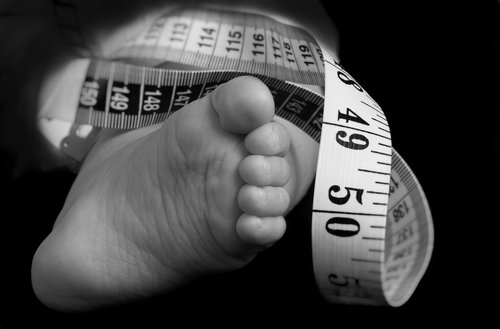
Welcome to your infant's first growth spurt! Yet you probably won't notice by your baby's expanding size, but rather the way they want to stay glommed onto your boob nonstop. "Growths spurts cause an infant to breastfeed more frequently," says Zoppi. "The same happens with formula-fed infants, only mothers just give them another bottle. But breastfeeding moms are often misled into thinking their babies are breastfeeding more because they aren't getting enough milk. That's not true. The extra nursing causes your body to respond by making more milk."
Day 10-14
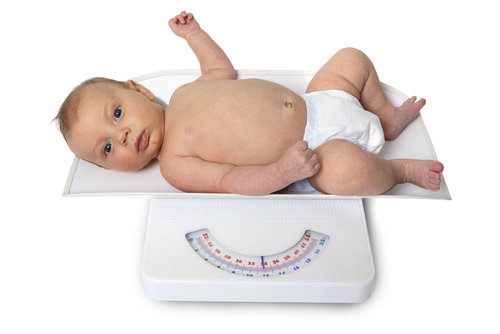
Strange, but true: Even if you nurse your baby around the clock, most breastfed babies typically lose weight in the days after birth. This happens because your milk supply takes a while to really get rolling, plus it also takes time for you and your newborn to get the hang of nursing! So don't worry if your baby's weight dips; typically they'll gain it all back by day 10 to 14.
More from The Stir: The Ultimate Guide to Breastfeeding
Week 2-3

Breastfeeding isn't supposed to hurt — if it does, you're doing it wrong — but while you shouldn't be in agonizing pain, nipples are a sensitive area that usually don't get messed with this often, so some soreness is par for the course. The good news is, studies show your nipples toughen up by two to three weeks, so there's a light at the end of this tunnel.
Week 4-6
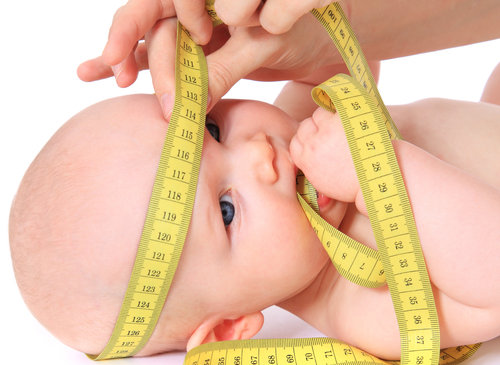
This is typically when babies undergo their second growth spurt! So prepare for some marathon nursing sessions.
Week 6

By week six, you're fully in the swing of breastfeeding. And that means that all the ups and downs of your milk production tend to level out, so you produce exactly as much as your baby needs and no more. "In most cases, the mom and baby come into a nice balance by about six weeks," says O'Connor.
More from The Stir: 10 Incredible Facts About Breast Milk You've Never Heard Before
Month 3-6
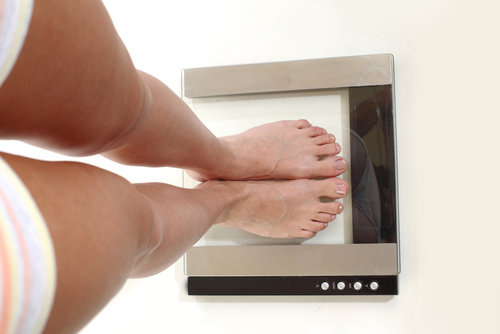
Ever heard how breastfeeding is a great way to lose weight? Well, it's true: The bigger your baby grows, the smaller your waistline becomes. Plus, studies have shown that breastfeeding moms shed the most pounds in the 3-6 month period when babies are biggest but have not yet diverted to solid food. Talk about one awesome side benefit for you!
Month 6

This is when most doctors recommend moms start feeding breastfed babies solid food. And that's when their interest and need to breastfeed may start to slowly wane. That said, we're talking really slowly, so don't feel like you're in a rush. In fact, research shows that breastfeeding past 6 months carries benefits, such as better cognitive and motor development in kids down the road.
1 Year

If you're still breastfeeding now, congratulations! Although more than 70 percent of moms nurse newborns, only 16 percent of moms breastfeed to the one-year mark. And this is how long the American Academy of Pediatrics recommends that moms breastfeed to gain all the nutritional and immunological benefits, although they add that moms should feel free to continue nursing past 1 year if it is mutually desired by mom and baby. After all, it's the ultimate bonding experience, so why not keep going?
More from The Stir: 10 Breastfeeding Myths Debunked




